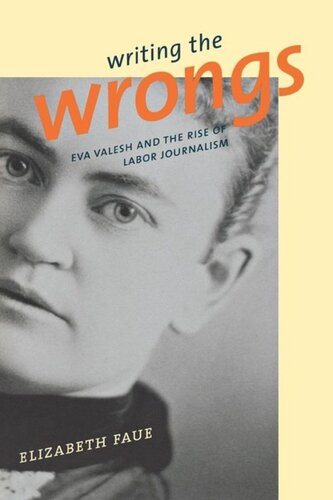

Most ebook files are in PDF format, so you can easily read them using various software such as Foxit Reader or directly on the Google Chrome browser.
Some ebook files are released by publishers in other formats such as .awz, .mobi, .epub, .fb2, etc. You may need to install specific software to read these formats on mobile/PC, such as Calibre.
Please read the tutorial at this link: https://ebookbell.com/faq
We offer FREE conversion to the popular formats you request; however, this may take some time. Therefore, right after payment, please email us, and we will try to provide the service as quickly as possible.
For some exceptional file formats or broken links (if any), please refrain from opening any disputes. Instead, email us first, and we will try to assist within a maximum of 6 hours.
EbookBell Team

0.0
0 reviewsEva McDonald Valesh was one of the Progressive Era's foremost labor publicists. Challenging the narrow confines placed on women, Valesh became a successful investigative journalist, organizer, and public speaker for labor reform.Valesh was a compatriot of the labor leaders of her day and the "right-hand man" of Samuel Gompers, president of the American Federation of Labor. Events she covered during her colorful, unconventional reporting career included the Populist revolt, the Cuban crisis of the 1890s, and the 1910 Shirtwaistmakers' uprising. She was described as bright, even "comet-like," by her admirers, but her enemies saw her as "a pest" who took "all the benefit that her sex controls when in argument with a man."Elizabeth Faue examines the pivotal events that transformed this outspoken daughter of a working-class Scots-Irish family into a national political figure, interweaving the study of one woman's fascinating life with insightful analysis of the changing character of American labor reform during the period from 1880 to 1920. In her journey through the worlds of labor, journalism, and politics, Faue lays bare the underside of social reform and reveals how front-line workers in labor's political culture—reporters, investigators, and lecturers—provoked and informed American society by writing about social wrongs. Compelling, insightful, and at times humorous, Writing the Wrongs is a window on the Progressive Era, on social history and the new journalism, and on women's lives and the meanings of class and gender.